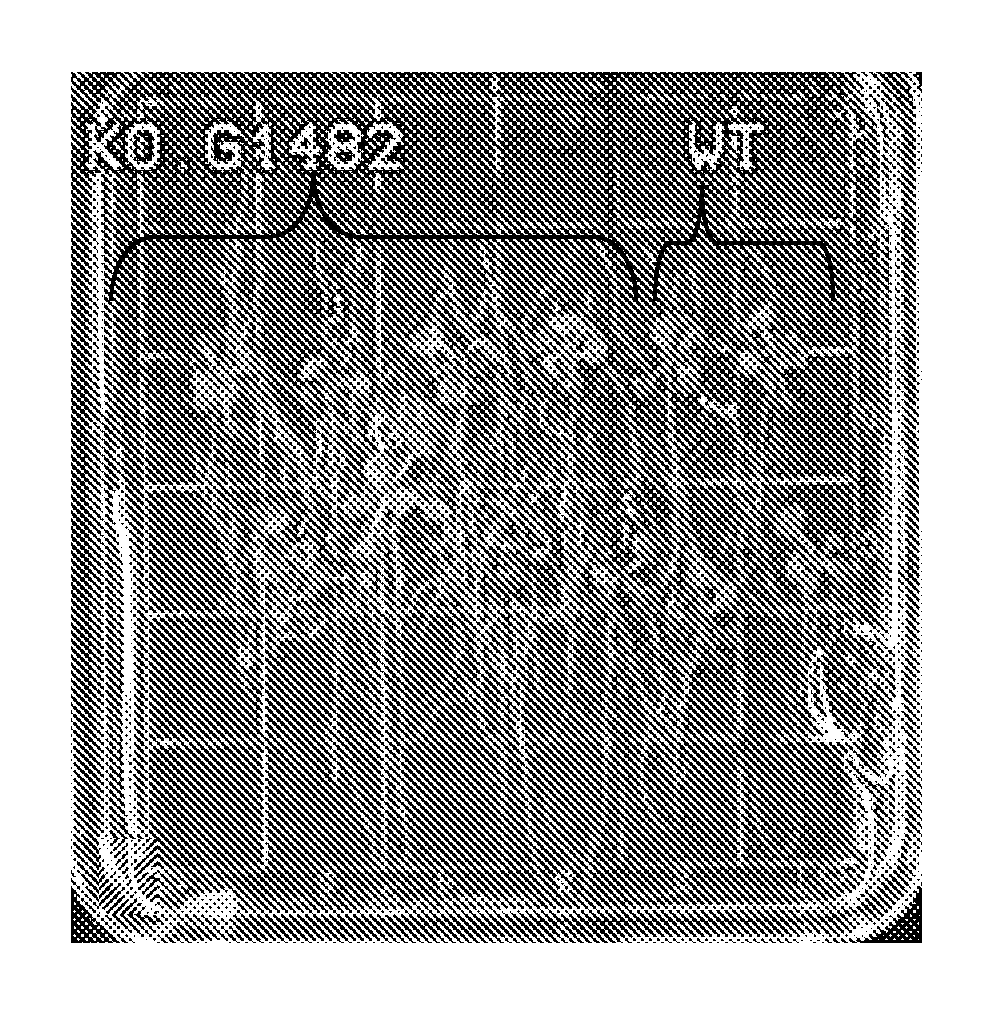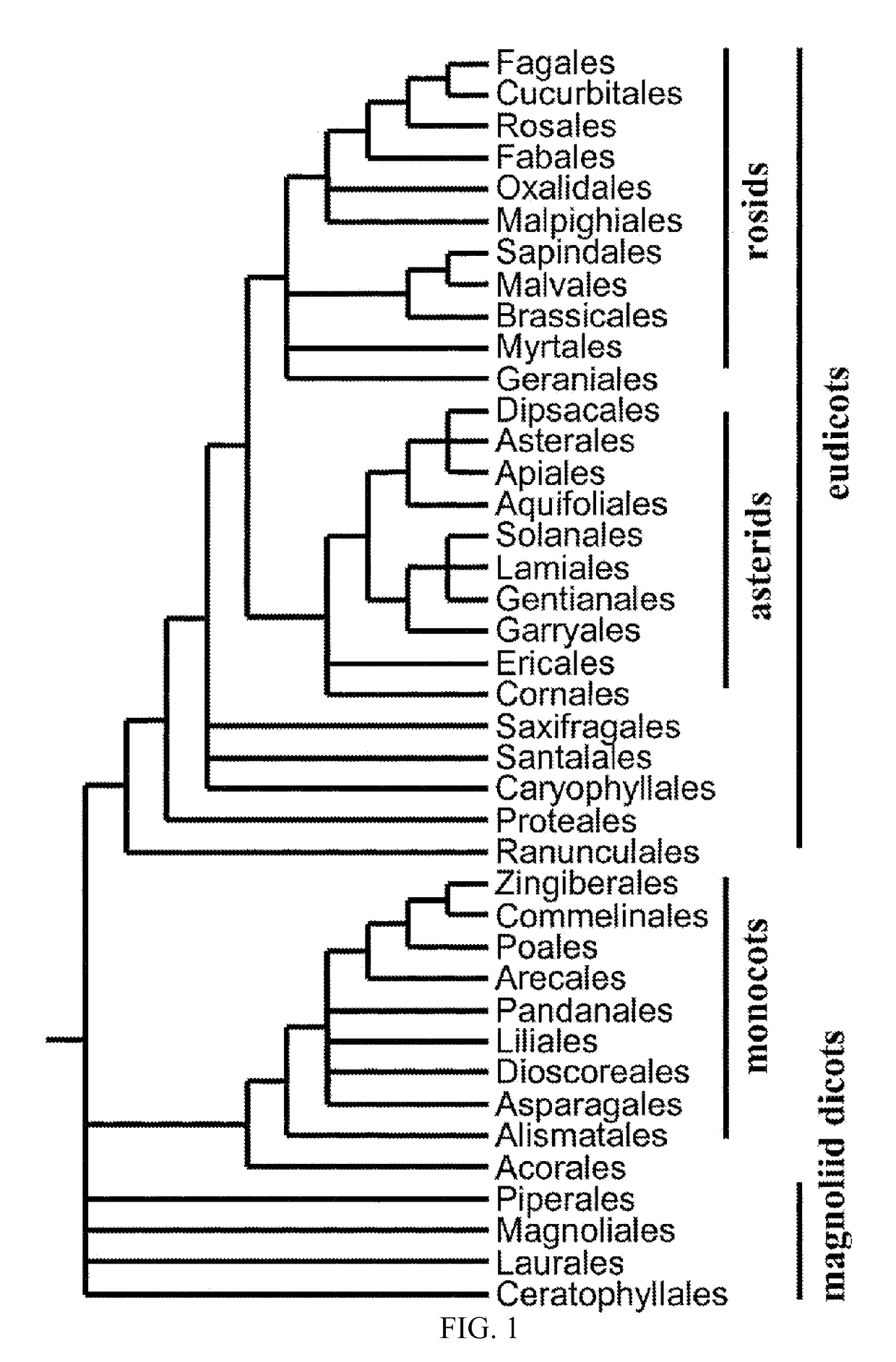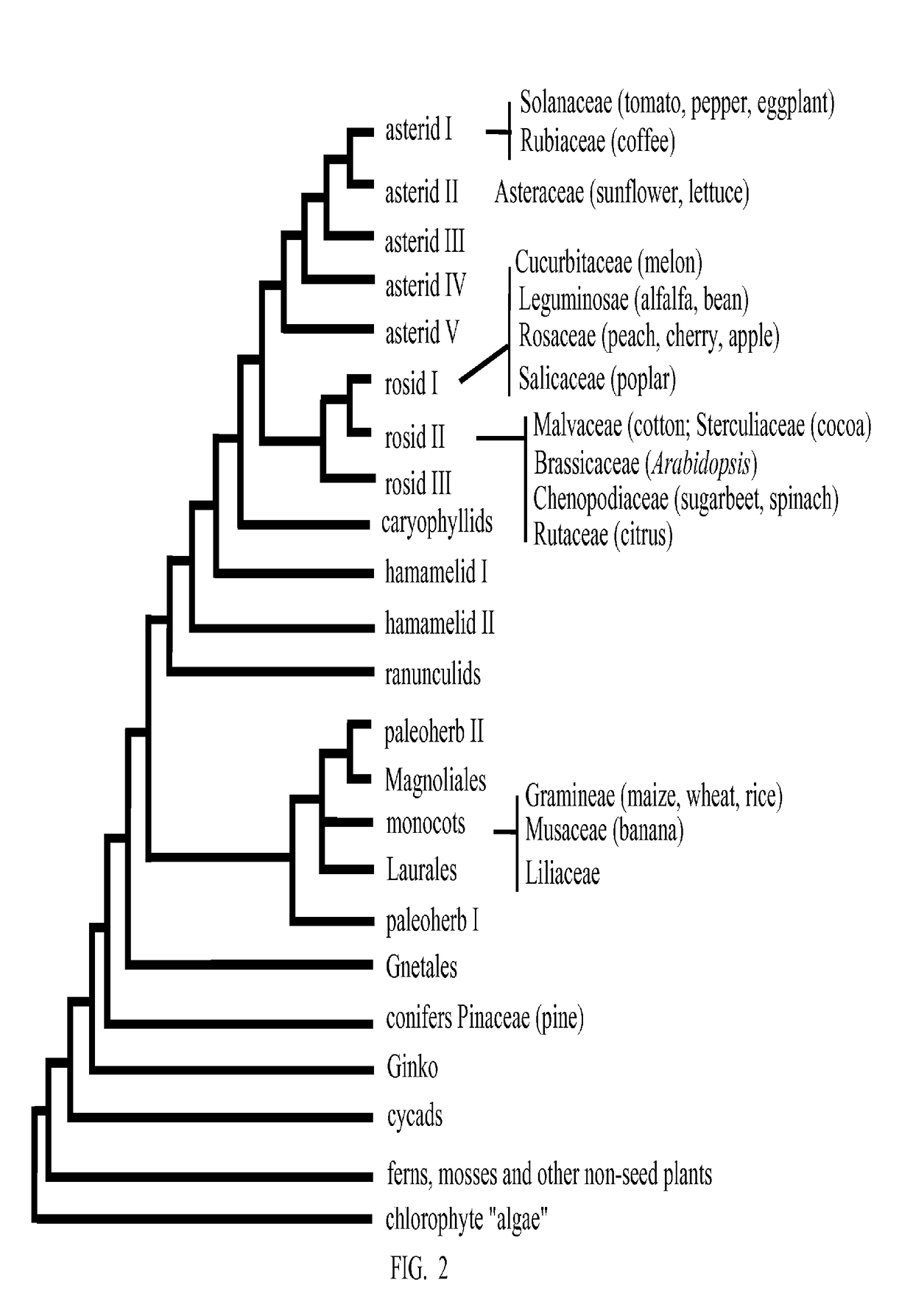Enhancement of plant yield vigor and stress tolerance
a plant and stress tolerance technology, applied in the field of plant genomics and plant improvement, can solve the problems of reduced plant growth and reproductive failure, adverse effects of water deficit, increased susceptibility to disease and pests, etc., and achieves improved germination and/or growth, improved yield, and carbon/nitrogen balance. balance
- Summary
- Abstract
- Description
- Claims
- Application Information
AI Technical Summary
Benefits of technology
Problems solved by technology
Method used
Image
Examples
examples
[0150]It is to be understood that this invention is not limited to the particular devices, machines, materials and methods described. Although particular embodiments are described, equivalent embodiments may be used to practice the invention.
[0151]The invention, now being generally described, will be more readily understood by reference to the following examples, which are included merely for purposes of illustration of certain aspects and embodiments of the present invention and are not intended to limit the invention. It will be recognized by one of skill in the art that a polypeptide that is associated with a particular first trait may also be associated with at least one other, unrelated and inherent second trait which was not predicted by the first trait.
example i
Transcription Factor Polynucleotide and Polypeptide Sequences of the Invention: Background Information for HY5, STH2, COP1, SEQ ID NOs: 2, 24 and 14, and Related Sequences
HY5 and Related Proteins
[0152]ELONGATED HYPOCOTYL 5 (HY5) and HY5 HOMOLOG (HYH) constitute Group H of the Arabidopsis basic / leucine zipper motif (AtbZIP) family of transcription factors, which consists of 75 distinct family members classified into different Groups based upon their common domains (Jakoby et al., 2002). HY5 and related proteins contain a structural motif (core sequence, V-P-E / D-φ-G; φ=hydrophobic residue), which is necessary for specific interaction with the WD40 repeat domain of COP1 (Holm et al., 2001). A multiple sequence alignment of full length HY5 and related proteins is shown in FIG. 3. Table 2 shows the amino acid positions of the V-P-E / D-φ-G and bZIP domains in HY5 (G557), and its Glade members (G1809, G4631, G4627, G4630, G4632 and G5158) from Arabidopsis, soy, rice and maize All of these p...
example ii
Methods for Modulation of Gene Expression in Plants
Constructs for Gene Overexpression
[0156]A number of constructs were used to modulate the activity of sequences of the invention. For overexpression of genes, the sequence of interest was typically amplified from a genomic or cDNA library using primers specific to sequences upstream and downstream of the coding region and directly fused to the cauliflower mosaic virus 35S promoter, that drove drive its constitutive expression in transgenic plants. Alternatively, a promoter that drives tissue specific or conditional expression could be used in similar studies. Constructs used in this study are described in the table below.
TABLE 5Expression constructs used to create plantsoverexpressing G1988 clade membersGene IdentifierCon-(SEQ ID NO)structSEQ ID NO:Pro-Species(PID)of PIDmoterConstruct DesignG1988 (28) AtP24998135SDirect promoter-fusionG4004 (30) GmP267488235SDirect promoter-fusionG4005 (32) GmP267498335SDirect promoter-fusionG4000 (4...
PUM
| Property | Measurement | Unit |
|---|---|---|
| nucleic acid | aaaaa | aaaaa |
| height | aaaaa | aaaaa |
| conductance | aaaaa | aaaaa |
Abstract
Description
Claims
Application Information
 Login to View More
Login to View More - R&D
- Intellectual Property
- Life Sciences
- Materials
- Tech Scout
- Unparalleled Data Quality
- Higher Quality Content
- 60% Fewer Hallucinations
Browse by: Latest US Patents, China's latest patents, Technical Efficacy Thesaurus, Application Domain, Technology Topic, Popular Technical Reports.
© 2025 PatSnap. All rights reserved.Legal|Privacy policy|Modern Slavery Act Transparency Statement|Sitemap|About US| Contact US: help@patsnap.com



